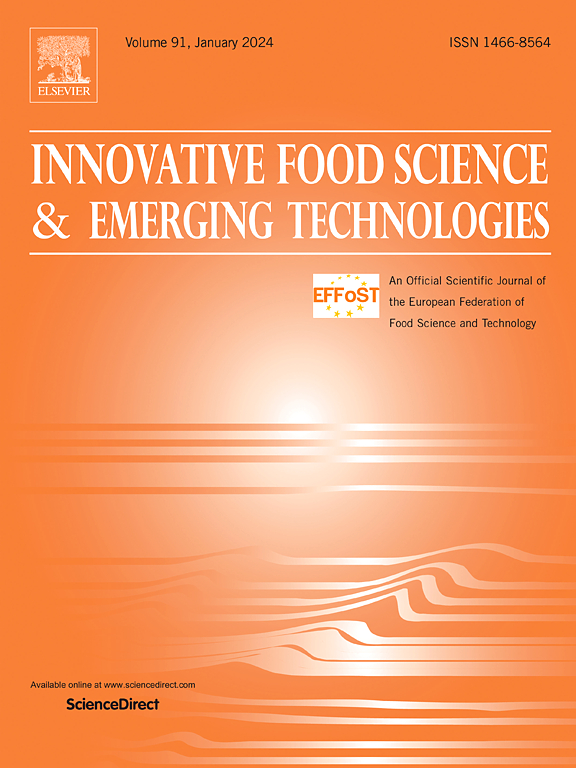Mix it up: Stability of oil-in-water emulsions made with commercial pea and potato protein isolate as emulsifier
IF 6.3
1区 农林科学
Q1 FOOD SCIENCE & TECHNOLOGY
Innovative Food Science & Emerging Technologies
Pub Date : 2024-12-14
DOI:10.1016/j.ifset.2024.103902
引用次数: 0
Abstract
Vegan foods are increasingly popular. Developing such foods requires commercially available plant-based ingredients that can stabilize an emulsion at suitable pH and after pasteurization. Isolates from pea, potato, or their mixtures might be used as such emulsifiers, but not much is known about which isolate or mixture would be best suited under the required conditions.
We thus determined if individual or mixed commercial pea (PePI) and potato protein isolate (PoPI) improve the physical and oxidative stability of oil-in-water (O/W) emulsions at various relevant pH values (3,4,7), after pasteurization and one-week storage.
Individual formulations of PePI and PoPI as well as mixtures of PePI and PoPI (PePI-PoPI) were most promising at pH 3, because of the high zeta potential (> 30 mV) and the low average droplet size of the resulting emulsions (< 2 μm). PePI induced droplet flocculation, although the droplet size remained unchanged after pasteurization and storage. When mixtures of PoPI and PePI were used as emulsifier, flocculated droplets partly coalesced. For all emulsions, the measured lipid oxidation products remained below 5 mmol/kg oil after pasteurization and one-week of storage.
Mixing PoPI and PePI thus did not improve the physical stability after pasteurization and one-week shelf-life, and we therefore recommend using either PePI or PoPI as emulsifier due to less coalescence. However, at pH 3, we additionally hypothesize that mixing (PePI-PoPI ratio 25:75 or 75:25) could still be relevant for other properties that are important during product development, such as digestibility and taste.
求助全文
约1分钟内获得全文
求助全文
来源期刊
CiteScore
12.00
自引率
6.10%
发文量
259
审稿时长
25 days
期刊介绍:
Innovative Food Science and Emerging Technologies (IFSET) aims to provide the highest quality original contributions and few, mainly upon invitation, reviews on and highly innovative developments in food science and emerging food process technologies. The significance of the results either for the science community or for industrial R&D groups must be specified. Papers submitted must be of highest scientific quality and only those advancing current scientific knowledge and understanding or with technical relevance will be considered.

 求助内容:
求助内容: 应助结果提醒方式:
应助结果提醒方式:


